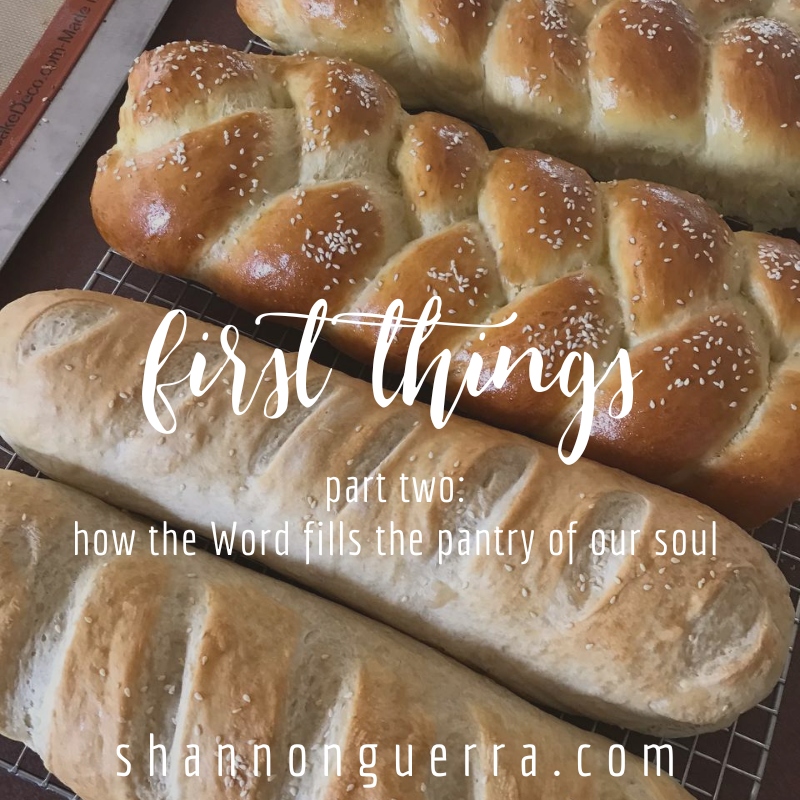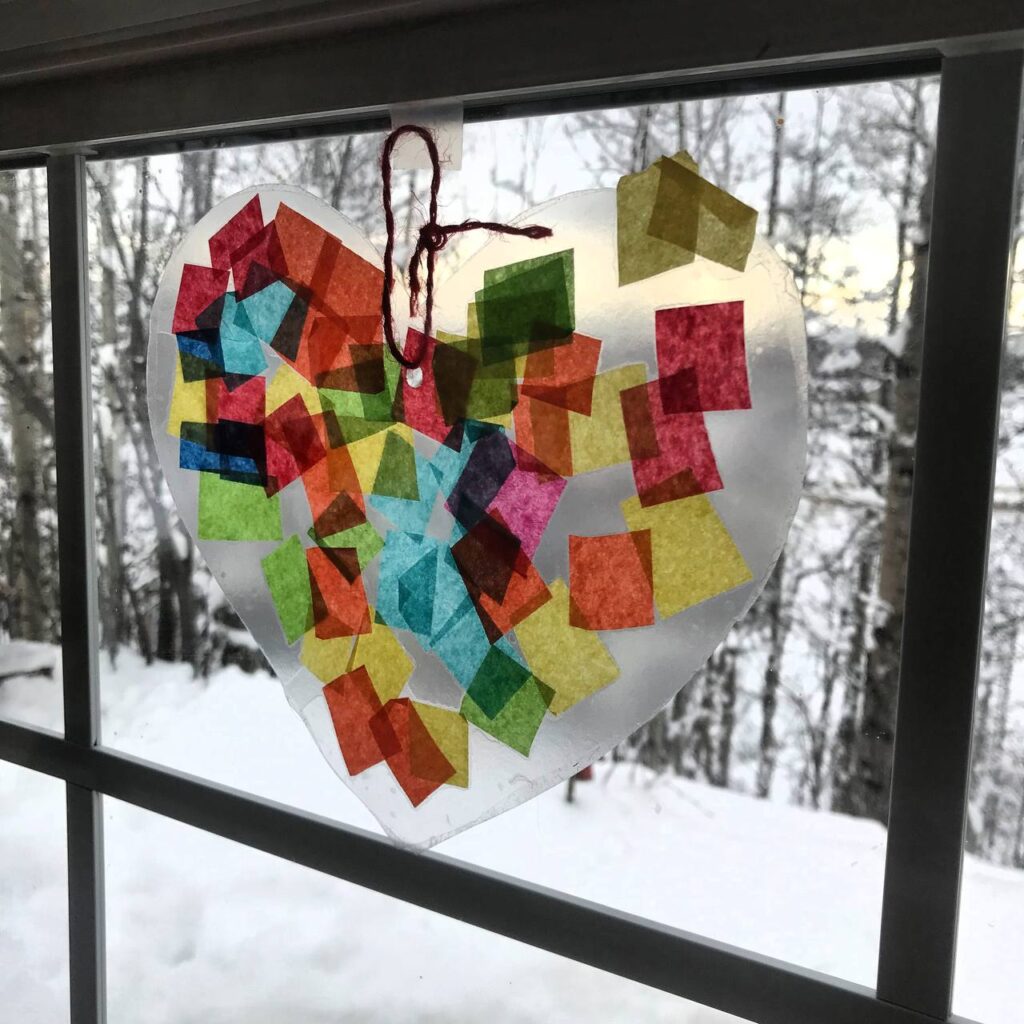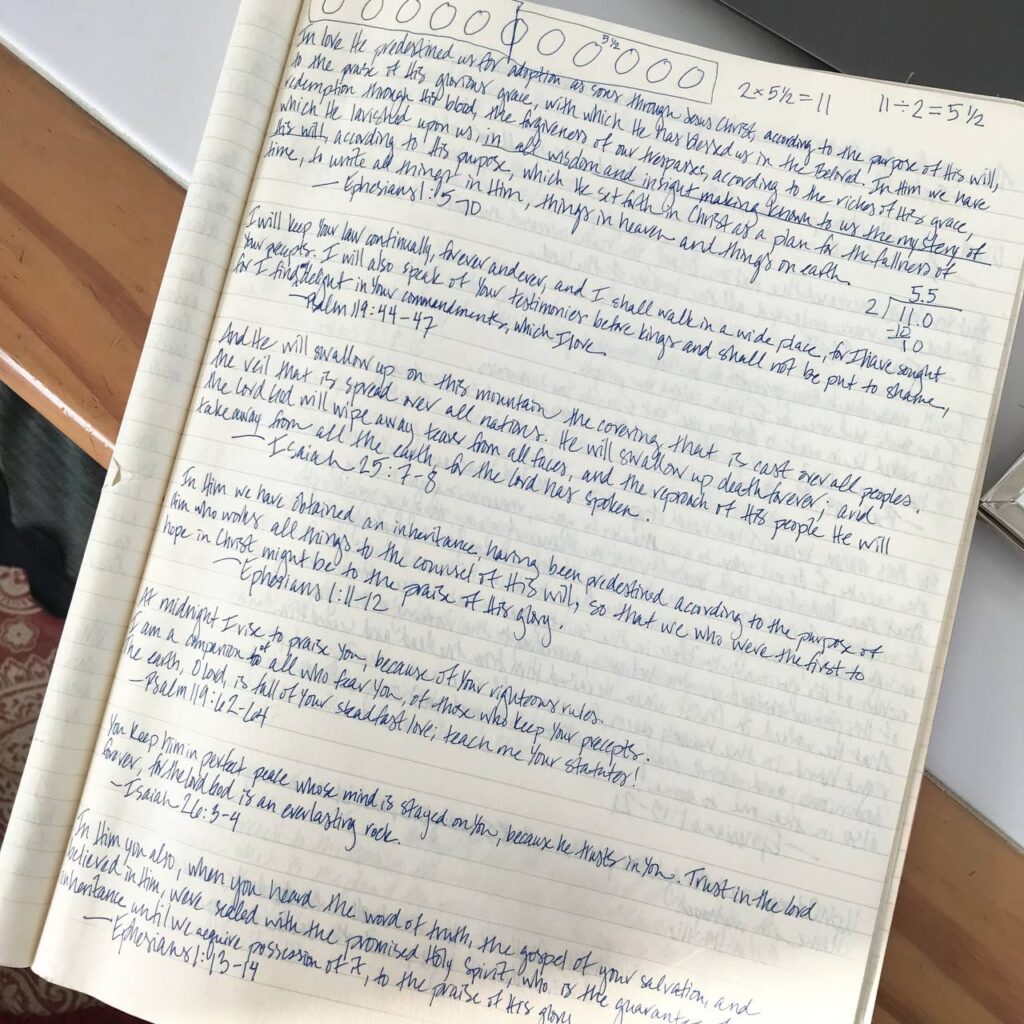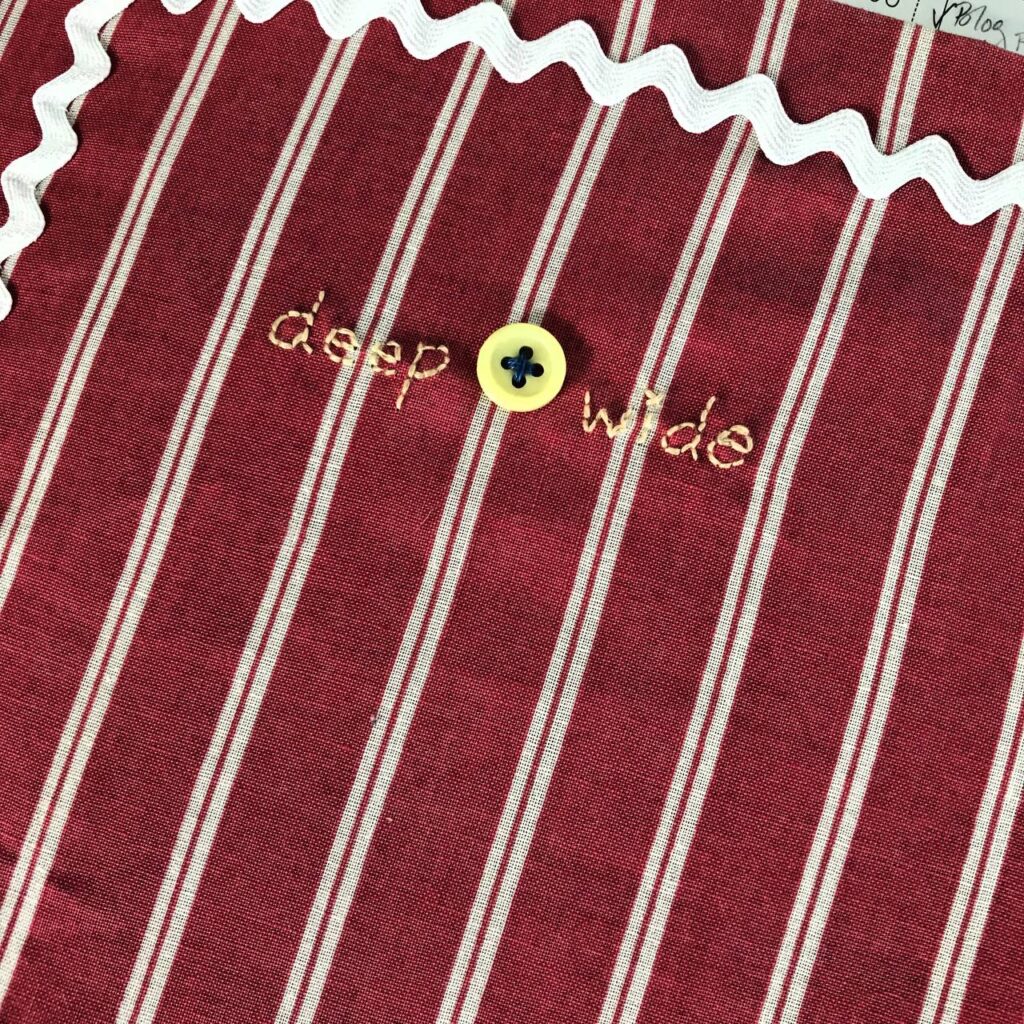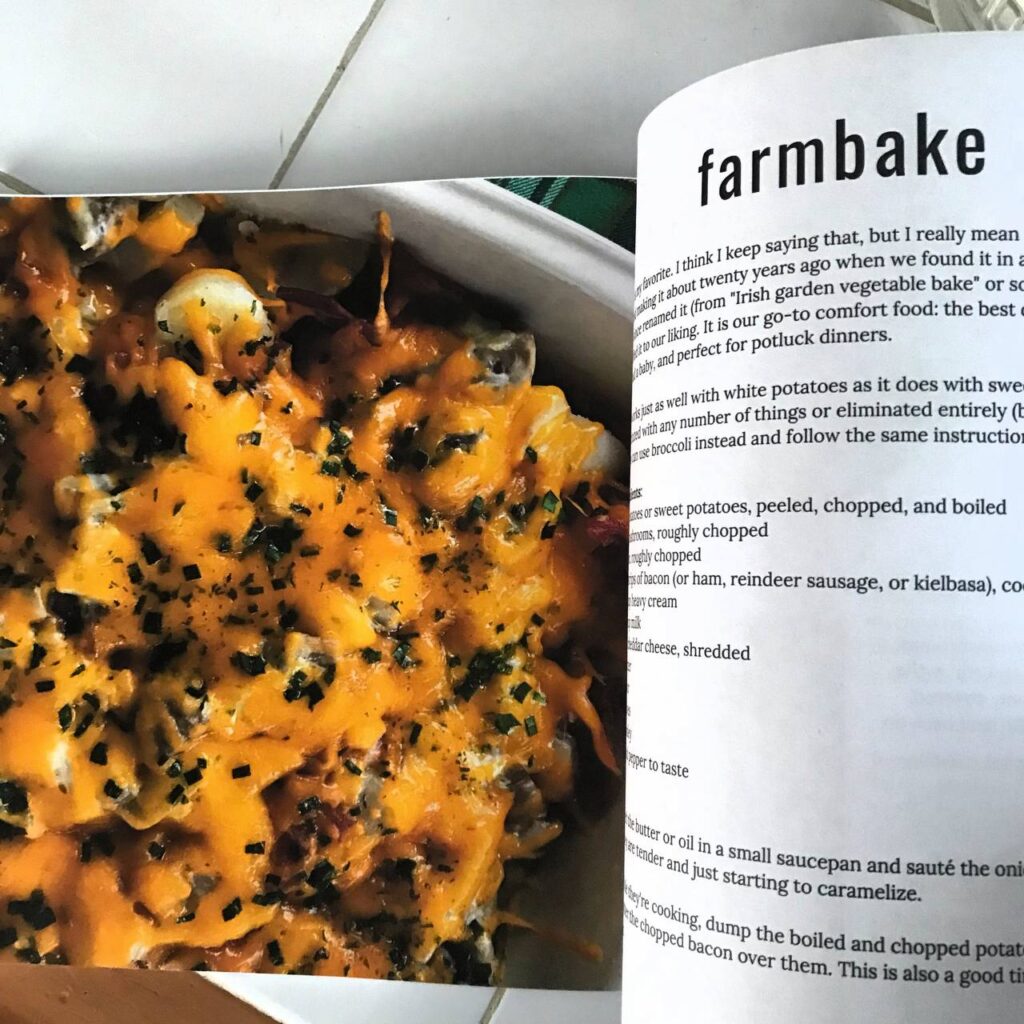You wouldn’t think gardening could make you that sore. You pull out seed packets, you put seeds in the dirt, you water.
But no, it’s not that simple because you actually have to move a lot of that dirt and water. Pots go here, pots go there. All the pots need filled with dirt and then you realize, Wait, that spot looks funny. So you go back to rearranging.
A bench is in the way, in the prime real estate of the porch’s sunny south side. You try moving it but no, BIG nope, that’s going to hurt tomorrow. So your husband comes and together you pivot (“PIVOT!” yes, I was thinking that, too) to the other side of the deck. Ahhh, done.
But no, not so fast, because there’s that empty space where the bench was, and you still need to put pots there. Drat.
And that’s how it goes.
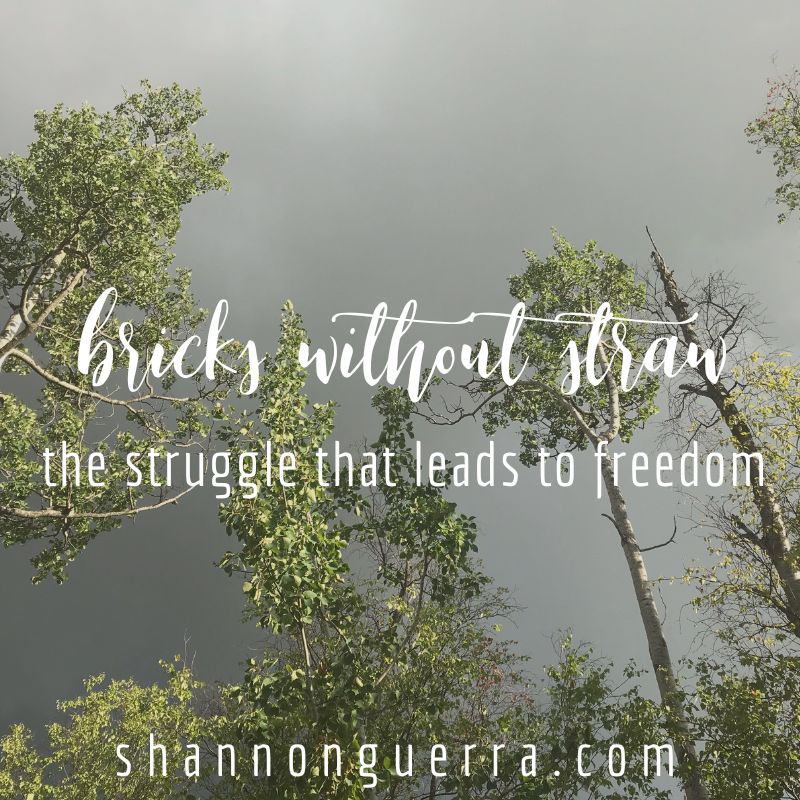
That night in the shower as I scrubbed the dirt off my feet I found a particularly dark spot under all of it, and rubbed at it. Ew, a blister? No, different texture, not rubbing off. Kind of gummy. Ah, tree sap. Gross.
This is how we cultivate life: Hands in the dirt, doing the work, asking for help, making a lot of turns and finding new perspectives, feeling the burn and ache of too much movement when we try too much on our own, and in the end, we still have to trust God for the harvest because we don’t control the weather or what goes on underground. And even if we fence what we can, there are still other critters out there who want to steal the harvest.
(Peter Rabbit, I’m looking at you.)
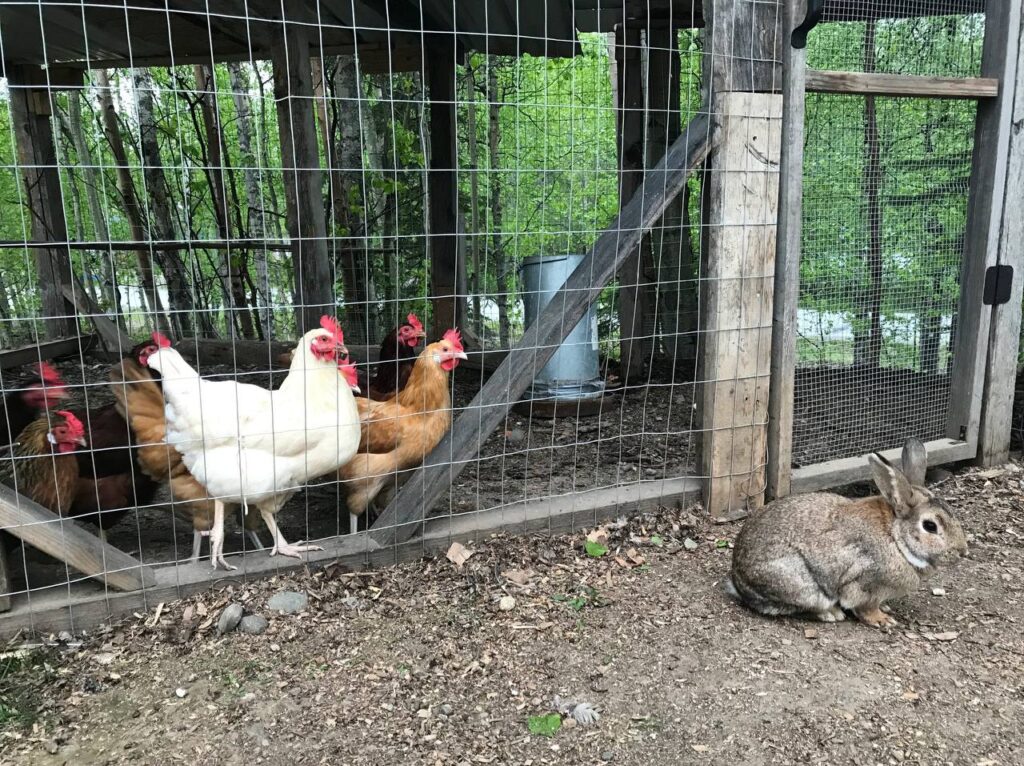
It’s raining so we are doing inside-the-house things, and I tried something new today: recording audio downstairs. It’s still empty where Iree moved out; we haven’t rearranged rooms yet, and I thought it would be quieter in the basement. Less traffic, less airplane noise.
WHAT WAS I THINKING.
Quail roosters crowing in the bathroom overhead. The furnace and water softener kicking on. And then, so help me, someone flushed the toilet.
(“…John seventeen says, All mine are yours, and–” BA-WOOSH, gurglegurgle pflalbghghghrrr…)
The new quail are almost fully grown, so they will quiet down soon. Our oldest son came over the other day and asked why the males crow so much, and I told him it’s because they feel safe – they can make noise because they know they’re not in danger. When they go outside, they don’t crow as much.
And, well…when they’re in the freezer, they’re absolutely silent.
We make more noise and move more freely when we feel safe, too. We try new things, have room for mistakes, we try again, and get better. We tend to ask for help from people we trust and we get comfortable with the tasks we do over and over again.
And then something changes suddenly: A financial challenge, or a health issue, or a move, or a basic routine gets rearranged, and we’re like…Ugh, now I have to figure this out all over again.
I like (no, love – like, looooove) routines and predictability. I prefer flexible structure with just enough variety to keep life interesting. I like reading new books but I want to choose which ones they are. I want to learn new things, but do it on my own timeline and with my own curriculum.
And to some extent the Lord allows it, but the last few several dozen years have brought plenty of surprises to keep us on our toes and on our knees, trusting Him for what we needed as life shifted under and around us. We haven’t wanted to learn certain things that He’s put in our way. I was happy with the worn trails I was used to, where I knew all the turns and risings and places where you had to step over tree roots that crept onto the path.
But He is constantly forcing us to branch out into new territory. There have been so many times I felt suddenly lost in unfamiliar ground, unsure of how to go on, or how to do what He was calling us to. I have often felt like we were making bricks without straw, and we are there again in this season.
So I’m reading Exodus 5, where the Israelites really had to make bricks without straw.
Or, not without straw, but it was no longer just given to them. They had to go find it themselves. It was punishment from Pharoah – and not just punishment, but it came as a result of Moses obeying God and telling Pharoah to let the Israelites go.
Let’s go back a little bit, because this is often our life, too:
Then Moses and Aaron went and gathered together all the elders of the people of Israel. Aaron spoke all the words that the Lord had spoken to Moses and did the signs in the sight of the people. And the people believed; and when they heard that the Lord had visited the people of Israel and that he had seen their affliction, they bowed their heads and worshiped.
– Exodus 4:29-31
Then Moses and Aaron went to Pharoah, gave him the message, and he said, No, BIG nope, you’ve clearly got too much time on your hands. Let’s make things more difficult for you.
So, to sum up:
We hear God, we do what He says, we feel hopeful about the future, and wham, the hammer drops. THANKS A LOT.
Is this life, though? We try new things in obedience and they don’t seem to work out. Or they get harder, or the circumstances become worse, or the whole situation reveals itself to be more complicated than you realized in the beginning, and if you knew how complicated it was going to be you wouldn’t have taken it on in the first place and that’s probably why God didn’t tell you…because he was protecting you from disobedience.
But maybe things are working out…they’re just still working out.
Because here’s the part of this story that struck me:
[Pharoah said] “Go and get your straw yourselves wherever you can find it, but your work will not be reduced in the least.” So the people were scattered throughout all the land of Egypt to gather stubble for straw.
– Exodus 5:11-12
They still had what they needed; it just wasn’t handed to them anymore. Suddenly they had the freedom to find it for themselves. The middle man was eliminated. They could get the straw on their own without the process being controlled by someone else. And that’s significant, because straw comes from grain, which is food for them and their livestock.
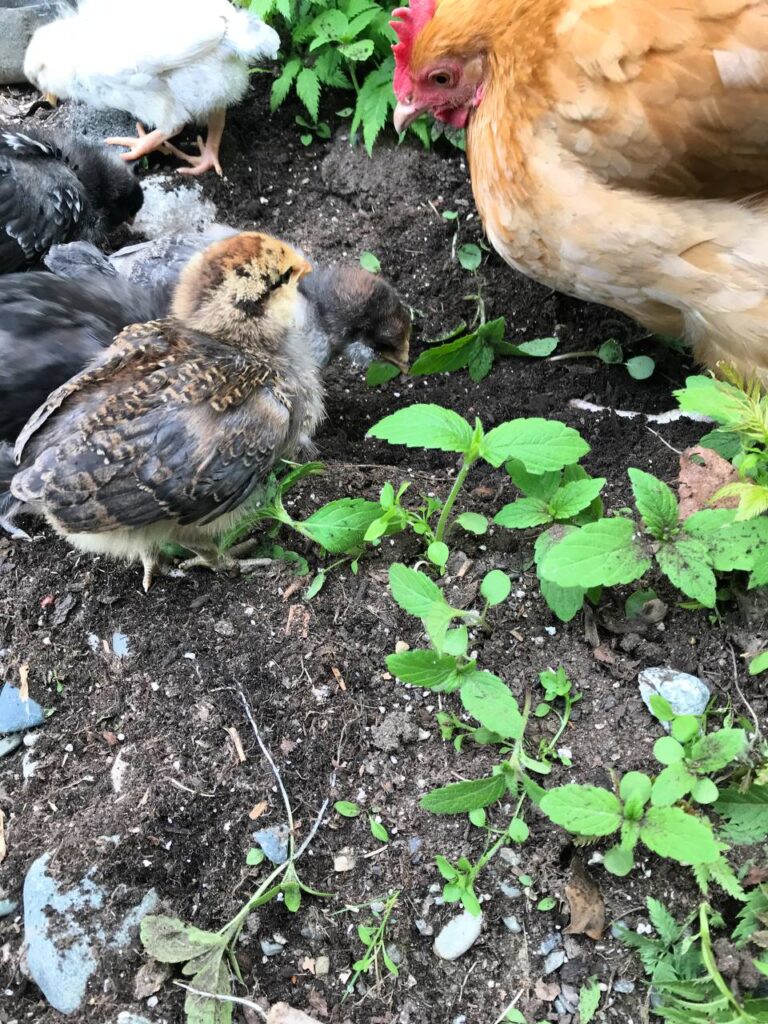
Yes, it was more work. Yes, it seemed impossible. No, they would never have done it if they hadn’t been forced to. But do you see what happened here?
The Lord is preparing them to be delivered. They are forced to be resourceful. They have to get to know the land around them.
Because the Exodus is coming.
How many things have you done in the last year or so that you never would’ve taken on if you didn’t feel compelled to? I can think of a zillion things – well, at least seven – that I could’ve easily left on my “someday” list. (Or, honestly? My “never in million years” list.)
For example, I love the chickens, but I probably wouldn’t have chosen to have two coops full of them. And the quail? No way. Also, I never would’ve pursued several business skills we’ve had to figure out and push through. And there are so many things I’ve learned about our government and systemic corruption and history that I was happier not knowing.
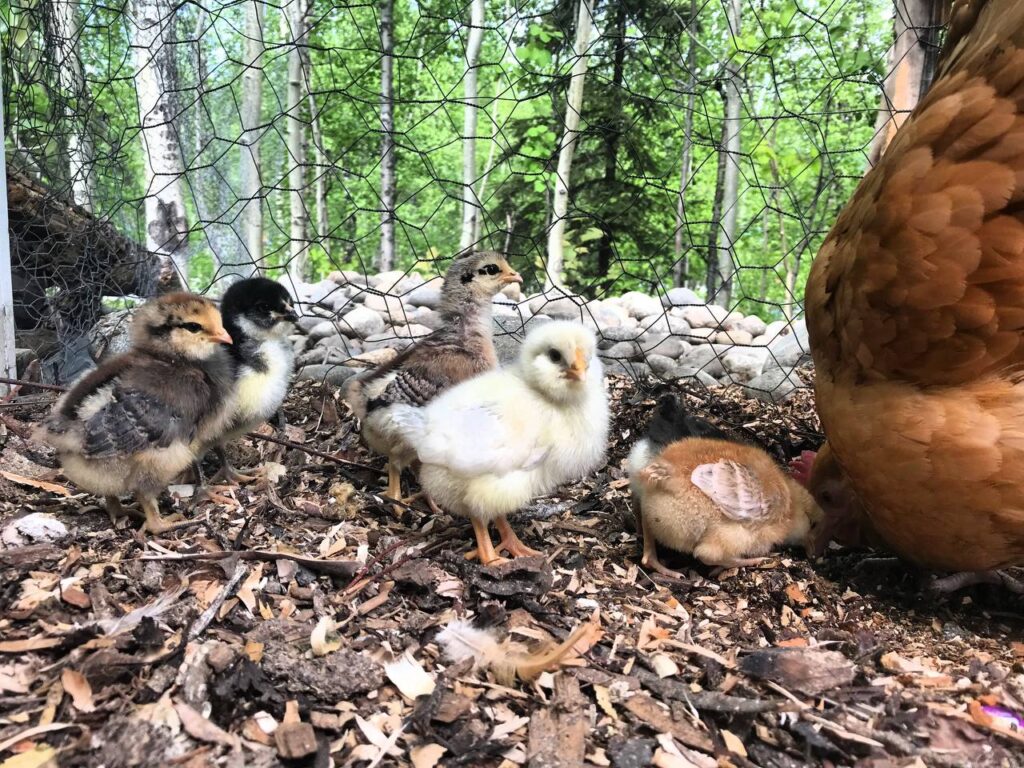
But the Lord has continued to say, Dig deeper. Look further. Try this. Get ready for that. Read about this. You need to know the land. This is a time to run faster than you think you can – and trust Me, you’ll be glad you did.
There is no fear in love, but perfect love casts out fear. For fear has to do with punishment, and whoever fears has not been perfected in love.
– 1 John 4:18
When obedience leads to more work, it feels like punishment because we aren’t seeing the promise on the other side of it yet. But the ache and the curveball and the new endeavors aren’t punishment; they’re growing strength. It’s upgrade.
It’s actually preparation for promotion, because God is getting us ready for freedom.
Want more posts like these, right to your inbox? Subscribe here.

